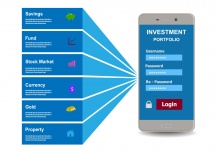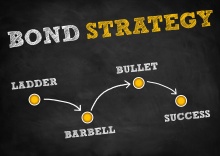Is Timing Everything?
“Time is Money” is a famous phrase attributed to Benjamin Franklin that many of us have heard before. So why is time so important to an investor and is time really money? The simplest answer is yes. The time value of money is a concept that a sum of money is worth more now than the same sum of money in the future. The underlying premise is that you could invest the money and grow the initial sum due to its earning potential in the interim.
Bubbles & busts
In the realm of economics, a bubble refers to a period in which current prices of an asset greatly exceed the fundamental value of the asset. Prices are inflated and purchasers are willing to pay or are paying very high premiums. A bubble can be formed around a single stock or the entire stock market, a financial asset or asset class and can even be formed around the entire financial market. Over time, the price of these assets begins to diverge upward from their true value and may not easily be noticed until the “bubble” has already been created.
Keep cash but don’t leave it idle
It may be a good strategy to keep some cash as part of a well-balanced investment portfolio, for planned and unplanned expenses or to take advantage of investment opportunities that may arise, especially in a rising interest rate environment. When market prices go down, investors with cash have the opportunity to sweep up normally expensive assets at bargain prices.
To Tender or Not to Tender?
Imagine you have been comfortably holding your bond for several years and you see on the financial news the issuers of your bond have made a tender offer to buy back this bond. What would you do? This may cause instant panic or feelings of uncertainty, especially if you have never experienced this situation before. What is a tender offer? Why would the issuer of the bond do this? Is your investment secure?
What to do when your investment matures
Many fixed income investments have a predefined maturity date. When making the investment the date is stated in the contract and known by the investor. There are also some investments which may have embedded clauses to allow the issuer of the investment to repay investors early. This is known as a “call feature”. The details of the criteria or circumstances which allow the issuer to “call” the investment, along with the dates when the call feature can be exercised, are stated in these types of investments.
Quantitative tightening – What is it?
In earlier articles I covered the terms bond tapering and quantitative easing (QE for short). In this article I want to talk little about quantitative tightening or QT. QT has garnered a lot of interest from market participants since the U.S. Federal Reserve Bank (Fed) hinted, at its last meeting in December, that interest rate adjustments are likely this year to counteract high and persistent inflation. So, what is QT, how is it related to tapering and or QE and what are the implications for markets and investors?
Bond strategies in a rising interest rate environment
With higher interest rates on the horizon, investors may be hesitant to purchase bonds right now or be worried about erosion in the value of bonds already in their portfolio, since interest rates and bond prices move in opposite directions. However, it is important, now more than ever, for investors to remember that bonds are intended to be medium to long-term investments and therefore cash flow, not trading gains and losses, should be the key consideration for individual investors. Nevertheless, there are numerous strategies an investor can employ in the face of a rising interest rates.










